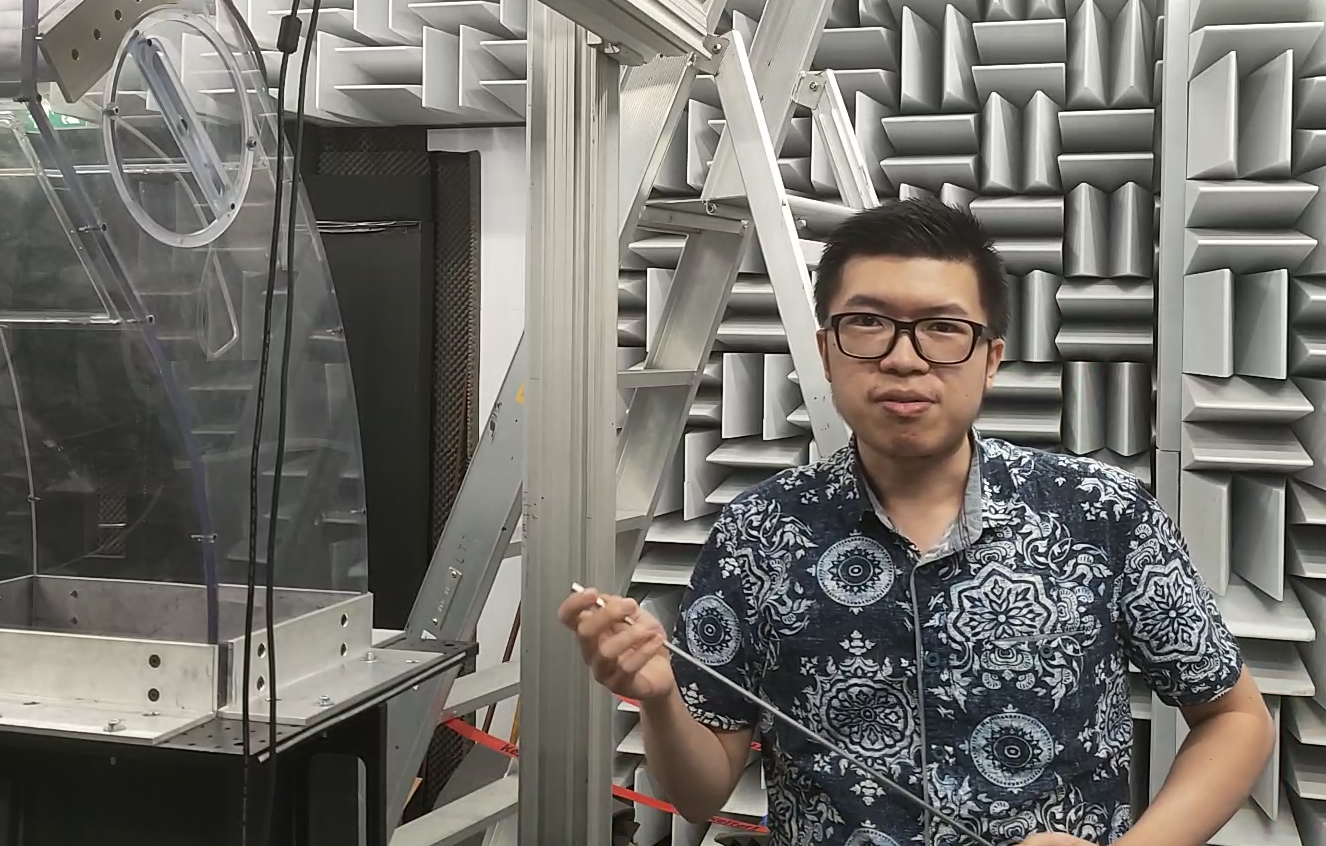Who wouldn’t like a quieter vacuum cleaner? Christopher Teruna’s research in aeroacoustics may help with that and many other applications. What’s his story?
Christopher Teruna: “I have worked with many master’s students and a lot of them considered doing a PhD, but not because they really wanted to do one.” (Photo: Christopher Teruna)
“I’m a PhD candidate at the Faculty of Aerospace Engineering. My specialisation is in the field of aeroacoustics, so we study how flow can generate noise, or flow-induced noise. In particular, we are learning how to reduce noise in different systems by applying flow-permeable materials, or materials that allow flow to penetrate into them. We’re looking at how this can be applied to aircraft and wind turbines and things like that. I’m writing my thesis at the moment and I hope to defend it in five or six months’ time.
The TU Delft Impact Contest is about looking for new ideas from TU Delft students. I’m working together with a master’s student in a team called AeraStriX. Our idea is to propose a sort of engineering consultancy where we help small to medium sized companies that would like to reduce the noise made by their products. This could be in heavy industrial applications like the automotive industry or heavy vehicles. We’re also thinking about targeting electronic appliances manufacturers. Consider a vacuum cleaner or a microwave oven that sometimes can be very noisy. We want to see how we can apply the permeable material that I’m researching at the moment to different problems.
‘Is my research useful for other people or not?’
For the contest, we have to come up with a business plan to demonstrate that our idea is actually viable and also sustainable in the long run. We have several weeks of training to develop our core idea into something that looks more like a business plan. The contest has a small prize, but if your idea is seen as successful then perhaps next year you can join the next stage of the contest. There are actually two categories and the one that we’re in now is the ideation part. The second one is the advanced part where you can actually come up with a prototype to show the thing that you would actually sell.
One of the motivations I have with the contest is that I want to see whether the subject of my research is something that is useful for other people or not, especially in terms of industrial interest. I consider myself as more of an industrial person and would like to apply things to advance technologies. I’m also considering jobs in industry at the moment. This contest for me is an experience to see whether what I’m researching so far is something valuable for industry.
Throughout my PhD I have found something interesting. I have worked with many master’s students and a lot of them considered doing a PhD, but not because they really wanted to do one. Maybe it’s because the job market is not so favourable right now, especially for the aerospace industry. I would say that you shouldn’t waste your time doing a PhD if you don’t really want to do one. Skills can be developed in other ways. But if you really like the challenge in academia and you would like to practice a proper way of communicating science, like publications, then join the four-year experience of doing a PhD. But I would say don’t do it unless you really want to.”
Want to be featured in Humans of TU Delft? Or do you know someone with a good story to tell? Send us an e-mail at humansoftudelft@gmail.com
Heather Montague / Freelance writer



Comments are closed.